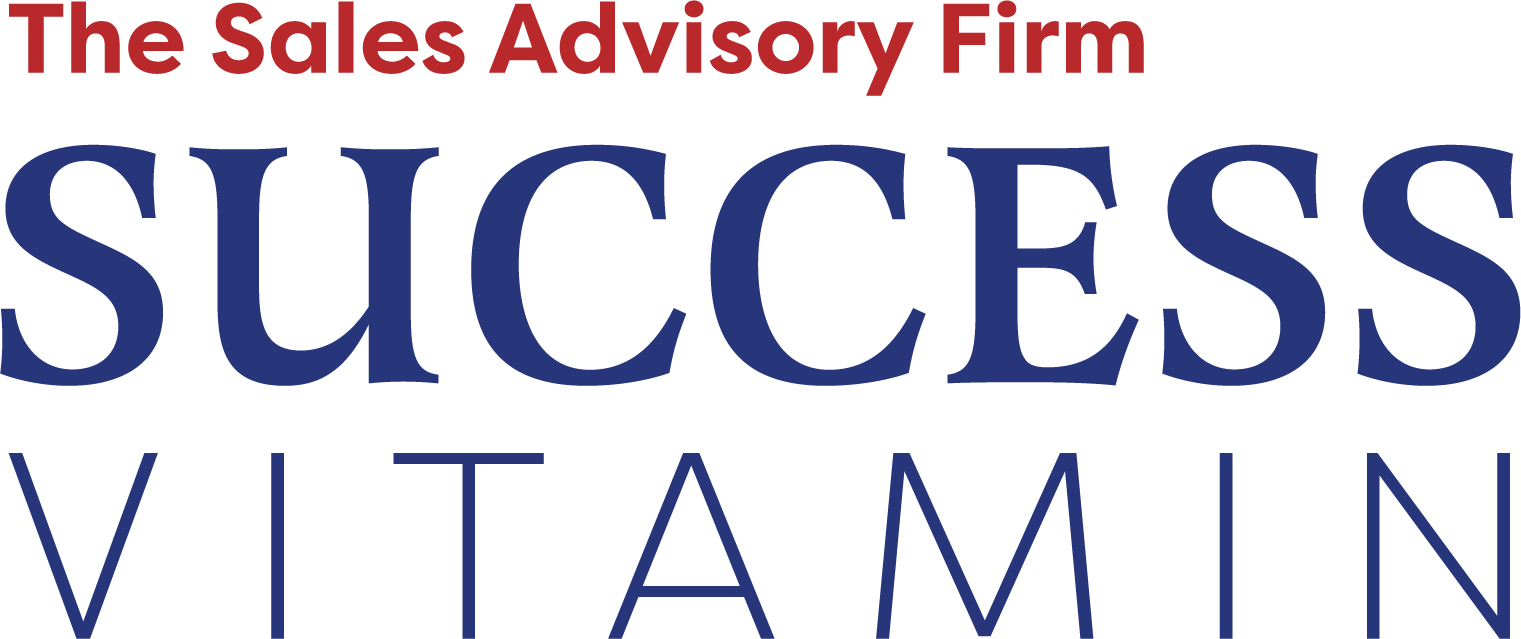A great sales advisor is not someone who acts as a consultant or a sales coach. Instead, he acts as your co-pilot who helps you figure out whom you should sell to and how to grow revenue without constantly starting from the scratch.
In this article, we have covered everything from budget, sales advisory process to ROI. If you are a founder of a startup selling solo or someone selling your first sales team, this guide will help you scale with confidence.
You may find it useful: Emotional Intelligence in Sales: The Ultimate Guide to Mastering Your Emotions and Closing More Deals
What is Sales Advisory?
An expert guided way that helps new age companies build a structured sales operation. It helps the founders of a startup transition from gut instinct to consistent revenue growth.
Sales advisory
A sales advisor brings its expertise to the following areas mentioned below:
Go-to-market strategy: By identifying potential customers, and help them choose the right channels to sell
Coaching: By training sales reps to improve on their negotiation and objection handling skills
KPIs and forecasting: By establishing clear KPIs and intuitive dashboards to track sales health and pipeline management
Hiring and onboarding: By helping with interviewing and training candidates and creating scorecards
Designing sales process: By creating a sales process from leading a deal to closing it.
Why is Sales Advisory required?
- You require an effective tech stack for your business to setup automations.
- Sales advisory helps refine your approach by reviewing calls and emails to improve the overall response rate.
- Sales advisors help ramp up the whole onboarding process so that the new hires learn quickly and handle deals from day one.
When do you need a sales advisor?
- CRM is disorganized.
- Sales are stagnant or declining for your startup
- Even though you have hired new sales reps, they are not growing and helping business grow
- You want to delve into your company’s customer acquisition rate or deal closing rate
Investment Planning for Sales Advisory
Investing your funds in sales advisory is never an additional cost to the company but an investment for team growth and business’s maturity.
Let’s take a look at monthly budget brackets for sales advisory below:
| Stage | Monthly Budget | Scope of work |
| Pre-Seed | Rs 85000 – Rs 250000 | Audit, outbound basics, CRM setup, early sales plan |
| Seed | Rs 250000 – Rs 600000 | Playbooks, founder coaching, live coaching |
| Series A | Rs 600000 – Rs 1200000 | KPIs, CRM automation, call reviews |
| Growth Stage | Rs 1200000 – Rs 2500000 | Multi-market expansion, Territory strategy |
Additional costs involved in Sales Advisory
| Category | Costs Involved |
| CRM Tools | Rs 4000 – Rs 25000 per user per month |
| Training Programs | Rs 85000 – Rs 850000 |
| Call Coaching Programs | Rs 4000 – Rs 8500 per user per month |
| Outreach Tools | Rs 8500 – Rs 40000 per month |
The flow of Sales Advisory
What differentiates a nominal sales advisor from a great sales advisor is how he guides you from diagnosing issues to team coaching and sustainable success.
Initial assessment and gap analysis
This stage lays the groundwork for future stages and helps identify opportunities for improvement.
Key Deliverables:
- Gap analysis across messaging and sales process
- Existing sales process map with a breakdown of responsibilities at every stage
- CRM audit to assess CRM hygiene and usage
Recommended read: 10 Sales KPIs That Every Team Should Track and Why
Aligning ICP with GTM Strategy
To ensure that your ICP (ideal customer profile) and GTM (go-to market) strategies are aligned, this stage is essential to pave a way for improved conversion rates and shortened sales cycles.
Key Deliverables:
- ICP Playbook mentioning customer pain points, objections etc.
- Prioritization matrix broken down per ICP segment
- GTM strategy assessment referring to current sales channels, market positioning and value propositions
Creating sales playbook
In order to document a scalable sales process that highlights everything that sales representatives need to do, when and how they need to do, this phase has a key role to play.
Key Deliverables:
- Sales Playbook first version hosted in sharable format
- Documented sales workflow with definitions of each stage
- Sales playbook template which is easy for reps to use and update
Optimizing sales tech stack
This phase focuses on getting the right tools onboarded and integrated for your sales team to operate efficiently without wasting their time in manual tasks.
Key Deliverables:
- Recommended sales tech stack mentioning what does each tool do
- Sales workflow automation tools for email follow-ups, task creation etc.
- Training resources and SOPs on usage of tools
From recruiting to readiness
This phase not only ensures that you are hiring the right talent at the right time but also helps them get up to speed quickly by providing them the right tools and knowledge.
Readers’ favorite: Case Study: Mamaearth – Leveraging Neuroscience To Increase Sales
Key Deliverables:
- Hiring toolkit (interview questions, assignments, and scorecards)
- A structured 30/60/90-day ramp plan with clear milestones and learning goals
- Pre-recorded training sessions
Establishment of KPI Framework
The purpose of this phase is to ensure that right metrics are being considered to track progress and set the right foundation for clear storytelling and effective decision making.
Key Deliverables:
- KPI Dashboard
- Weekly/monthly performance reports with summaries of progress made and blockers if any
Sales coaching and continuous improvement
This phase ensures continuous improvement of rep over time. It focuses on coaching sales team by offering hands-on experience and live feedback.
Key Deliverables:
- Feedback loops with leaders
- Change tracker
- Real time call reviews and personalized coaching plans
Smooth handoff and transition plan
This phase ensures that sales process continues to perform without getting hampered whenever any representative leaves the organization.
Key Deliverables:
- Updated wikis/playbook
- Submission of transition plan to Sales VP
- Final retrospective session highlighting wins and failures
How to Measure ROI from Your Sales Advisor
Everyone expects a return from what they do. Similar is the case with Sales Advisory. When done in a right way, sales advisory yields three to ten times return in a span of year.
Let’s take a look at the key ROI indicators with the timeline below:
| Timeline | KPIs |
| Upto three months | CRM Usage, email response rate, SQLs per week on rise |
| Three to six months | Win rate, deal velocity, SQL to opportunity conversion rate |
| Six to twelve months | Monthly Recurring revenue (MRR), CAC:LTV Ratio, forecast accuracy |
| Beyond twelve months | YoY growth rate, market expansion success rate, employee retention and engagement rate |
Tools to measure ROI
- A ROI tracker using Google Sheets (You can use the below formula to calculate the ROI)
- A personalized KPI dashboard
Traits of a great sales advisor
- They have closed deals and not just advised: They scaled revenue for a business from $0 to $20M+.
- In addition, they hold selling experience in B2B, D2C and Fintech markets. They know how to convince the customer by talking to them in their language.
- They have gone from solo to scalable: Sales advisors know about transitioning from selling as a founder to team-driven selling.
- They teach, and not just tell: Valuable sales advisors coach representatives to diagnose their issues independently to reduce dependency on them. They educate them on how to do things and then provide feedback.
- They use data wisely, but are not obsessed with it: This means they define KPIs to measure success, build dashboards to measure metrics such as win rates and customer acquisition costs.
Red flags to watch out for in sales advisory
- Tools first, process second: If a sales advisor is prioritizing sales tools more as compared to sales process, it’s a warning sign because this demonstrates wastage of resources on inessential tools.
- Missing KPIs means you are falling behind: If your company doesn’t track KPIs via a dashboard or doesn’t focus on metrics such as sales velocity, conversation rates etc. it will make it difficult for them to measure impact
- Strategy without execution: Instead of concentrating just on strategy presentations, a sales advisor should focus on live coaching and hands-on execution. It’s important to understand that strategy alone can’t bring revenue, building CRM pipeline, conducting mock role plays can also do wonders.
- Inconsistent communication: Sales advisory requires high communication to build trust. Lack of clear communication creates confusion and leads to missed deliverables. It’s advisable to used shared trackers such as Google sheets and conduct monthly retrospective calls to reflect on what can be done better.
Explore further: How to Generate Leads Through LinkedIn: 2024 Best Practices
Best Practices for Founders
When your business is in the initial stages of development, a founder plays a major role. Let’s look at some pro tips for founders below:
- Create clearly defined engagement goals to set the right expectations from the start and focus on important areas.
- Loop advisors in workflow by adding them on Slack or inviting them to weekly sales calls to receive quick feedback.
- Make a habit of writing down everything or face the risk of losing it. Every discussion, learnings from sales calls should be captured and shared with all those who were a part of it.
- Review the progress every two weeks to understand what worked, and what didn’t. This makes the whole engagement clear and result based.
Did you find this article helpful? Share your thoughts with us.


